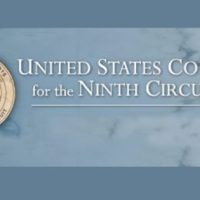The Republican Study Committee, a conservative caucus of 158 Republicans in the U.S. House of Representatives, releases an annual budget called “A Framework for United Conservatism.”
Its aim is to unite conservatives in Congress behind a long-term fiscal plan.
This year’s Framework builds on the RSC’s fiscal year 2018 budget both of which embody conservative principles, sharing many similarities with Heritage’s Blueprint for Balance; 55 percent of Heritage’s proposals are fully included in the 2018 Framework.
The Heritage Blueprint serves as, in the words of Politico’s Sarah Ferris, “a conservative dream budget” for lawmakers who seek to balance the federal budget and put power back into the hands of the American people.
The 2018 RSC budget also takes significant steps towards curbing federal regulation and unleashing economic growth. Recognizing that the U.S. fiscal challenge cannot be effectively addressed without entitlement reform, RSC’s Framework puts forth recommendations to fix Medicare and Social Security.
RSC’s budget also makes significant progress in areas like agriculture, energy, welfare reform, health care, and retirement security.
Both the RSC’s Framework and Heritage’s Blueprint would eliminate or reform programs run by the U.S. Department of Agriculture.
The policy proposals endorsed by both organizations would help to end cronyism, reduce regulation, and promote competition.
One example is a recommendation to eliminate the federal sugar program, which serves as a hidden tax on consumers by raising sugar prices.
Both the Blueprint and the Framework also recommend eliminating the USDA’s Rural Business Cooperative Service, a program which, among other things, unfairly picks winners and losers in the energy sector.
On welfare reform, the Framework and the Blueprint include three major goals: promote work and marriage, pay for outcomes rather than services, and require transparency in welfare spending and benefits.
Restructuring welfare in such a way does two things. It ensures that those who need assistance receive benefits, and it promotes a culture of self-sufficiency.
The RSC budget also makes substantial progress on Medicaid reform.
One significant proposal supported by the RSC and Heritage experts would put the program on a budget. Four categories of enrollees—children and able-bodied adults, the disabled, low-income Medicare beneficiaries, and long-term beneficiaries—should be financed separately subject to an aggregate federal spending cap. Restructuring Medicaid in this way would increase transparency and accountability while also keeping the program on a stable fiscal path.
Read the full story from The Daily Signal
Want more BFT? Leave us a voicemail on our page or follow us on Twitter @BFT_Podcast and Facebook @BluntForceTruthPodcast. We want to hear from you! There’s no better place to get the #BluntForceTruth.







